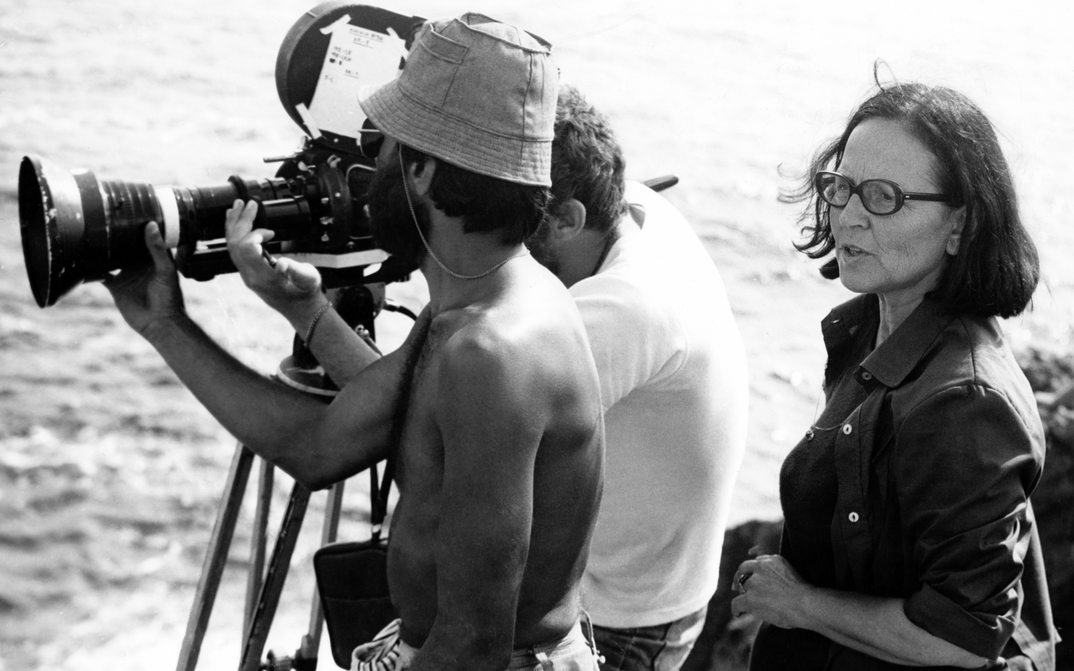Women Make Film

Women make films. This should go without saying - but it doesn’t. Women have been behind the camera since the beginning of film history. But there is no question that in the 125-year history of film, access to filmmaking has been made difficult or even impossible for women, that they have not had the same opportunities as men, that the films they have made against the odds have rarely been included in the canon, that they have been overlooked, marginalized and forgotten, that their legacy has been neglected and that they have often been written out of film history. In a series extending over four months, we will present works by women directors from a wide range of countries and eras, that have not received enough attention and continue not to receive enough, in order to give them visibility.
A little-known fact of film history is that the first two decades of cinema there were more women active in the film industry than ever since. Back then, the new and as yet unrecognized form of art and expression offered both men and women an opportunity to experiment and try things out.
Once cinema had established itself as a serious career option and industry, women were pushed back particularly from the profession of directing, but also from screenwriting and producing. Their original contribution to film history was ignored and eventually forgotten. The few women directors who were able to hold their own, especially during the heyday of the studio systems, confirmed the rule as absolute exceptions. More and more, filmmaking became a matter for men. This is only changing slowly and makes a constant reassessment and rewriting of film history all the more necessary.
Our series was inspired by the 14-hour compilation WOMEN MAKE FILM (GB 2018) by film critic and director Mark Cousins. It consists of extracts from several hundred films by a total of 183 women directors: "This is a film school of sorts in which all the teachers are women: an academy of Venus.” (Tilda Swinton)
We have selected 13 of these female filmmakers for our program. We will show several films by them all and contextualize them with introductions, texts, and discussions. The resulting knowledge will be permanently available on our homepage and will provide an initial access.
Tang Shu Shuen
Born in 1941, Tang Shu Shuen (also known as Cecile Tang) was one of the first female directors in Hong Kong and holds a singular position in the film landscape there. After studying film in California, she made four films between 1970 and 1979, of which the first two in particular had a major impact on Hong Kong's film culture, which was reshaping itself at the time. She brought new impetus to a film scene in crisis, independently producing her first film, which was shot in Hong Kong and Taiwan, and completing it in the United States. Her debut feature THE ARCH (1970) was a precursor of the New Wave in Hong Kong and the director was one of the first to bring socially engaged and realistically depicted themes to the screen. China Behind (1974), of which unfortunately no print is currently available, tells the story of a group of students planning to flee to Hong Kong for fear of the Chinese Cultural Revolution in quasi-documentary style. The film was banned by the Hong Kong censors and not shown until the 1980s. Tang Shu Shuen’s four films, which all boast her own innovative cinematic language, received critical acclaim, but were never commercial successes. After the comedy The Hong Kong Tycoon (1979), she gave up filmmaking altogether and moved to the US, where she still lives today.
The originally planned screening of SUP SAP BUP DUP on 10.9. can unfortunately not take place due to legal reasons. Instead we will repeat THE ARCH.
Binka Zhelyazkova
Binka Zhelyazkova (1923-2011) was Bulgaria's first female feature film director. With the seven feature films and two documentaries that she made between 1957 and 1988 she repeatedly faced censorship and bans, constantly having to find new avenues for her cinematic work. A bold filmmaker who uncompromisingly defended her humanist values, she created images as poetic as they were metaphorical.
After the war, during which she was a youth member of a partisan group, she studied at the Sofia Theater Institute and then seized the opportunity to make a name for herself in the newly emerging Bulgarian film industry. She and her husband Hristo Ganev, who studied in Moscow and worked as a screenwriter and director, developed a close working relationship.
Only recently, has Zhelyazkova's work become more accessible: The Thessaloniki International Film Festival dedicated a complete retrospective to her in 2021 and her films are now available in digital form. BINKA - TO TELL A STORY ABOUT SILENCE (Elka Nikolova), a 2006 portrait of the director that we will be showing at arsenal 3 in September also drew attention to her. (Annette Lingg)
The program has been made possible by a grant from the Capital Cultural Fund.
